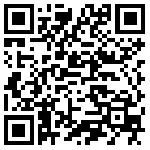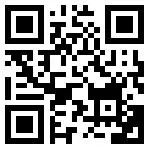科技工作者之家
科技工作者之家APP是专注科技人才,知识分享与人才交流的服务平台。
科技工作者之家 2019-08-25
来源:Nature自然科研

又到了每周一次的 Nature Podcast 时间了!欢迎收听本周由Benjamin Thompson和 Shamini Bundell 带来的一周科学故事,本期播客片段讨论二战的隐秘历史。欢迎前往iTunes或你喜欢的其他播客平台下载完整版,随时随地收听一周科研新鲜事。

音频文本:
Voiceover
I have taken occasion to speak to you tonight because we have reached one of the climacterics of the War.
Interviewer: Nick Howe
It’s June 1941, and Winston Churchill is addressing the people.
Voiceover
At 4 o’clock this morning, Hitler attacked and invaded Russia.
Interviewer: Nick Howe
This would be the beginnings of an alliance between the UK and Russia, forged at the height of the Second World War.
Voiceover
It follows therefore, that we shall give whatever help we can to Russia and to the Russian people. We shall appeal to all our friends and allies in every part of the world to take the same course and pursue it, as we shall, faithfully and steadfastly to the end. We have offered to the governments of Soviet Russia any technical or economic assistance that is in our power.
Interviewer: Nick Howe
These may have been the words that inspired a man later referred to as having ‘accomplished greater damage than any other spy in the history of nations’ – Klaus Fuchs, the spy who spilled the secrets of the atomic bomb. At least that is according to Frank Close, a physicist from the University of Oxford, who’s written a new book all about him. Here’s Frank.
Interviewee: Frank Close
One of the things that he had in his mind, he was told, ‘You must escape because when the Revolution comes, people like you will be needed to build the new Germany.’
Interviewer: Nick Howe
Fuchs fled Germany during Nazi rule. He and his family had ties to communism and when his father was arrested by the Gestapo, he escaped, finding refuge in the UK. There he studied physics and made a reputation for himself as someone who gets things done.
Interviewee: Frank Close
I wouldn’t want to give the impression that he was somebody in the league of Einstein or Fermi – he certainly wasn’t – but if you wanted a problem solving, Klaus Fuchs was the sort of person who could solve it.
Interviewer: Nick Howe
And one of the most high-profile problems in physics at the time surrounded the atomic bomb. Since the splitting of the atom two years before, it had been theorised that tremendous amounts of energy could be released from uranium, enough to make a devastating bomb. However, for a long time it was thought that such a bomb would require too much uranium to be practical in war. That was until 1940 when Rudolf Peierls, along with Otto Frisch, realised that if uranium could be enriched – that is to say the radioactive component could be increased – a bomb would be possible.
Interviewee: Frank Close
And Peierls was effectively leading the British efforts into working out how to do this in the initial stages. And by 1941, the problems to be solved were sort of mounting up. I mean he was doing teaching in the university, he was doing this in effect almost in spare time. He needed an assistant. He was impressed by Klaus Fuchs. He knew that Fuchs was an émigré like himself. He knew that Fuchs detested Hitler, which was also a good thing, and so arranged for Fuchs to become his assistant, working with him and the team on developing the theory behind how to enrich uranium to make a bomb.
Interviewer: Nick Howe
Through Peierls, Fuchs became intimately involved in the British effort to make a bomb, then the American effort, the Manhattan Project, and even the first test of a nuclear bomb, Trinity. Little did Peierls know, Fuchs had had another employer – the KGB. Fuchs was a spy, and had been passing information to the Russians from the start.
Interviewee: Frank Close
So, he was certainly passing information as early as August 1941 – I found documents that show that from KGB records – and he passed information continuously throughout the War from initially Birmingham, then from New York when they moved across to the United States, then from Los Alamos, where the bomb itself was being assembled, right the way through to the day the bomb was tested and shown to work. He passed all the data on that working bomb to the Russians, so now the Russians knew this was a bomb that works and I estimate that the amount of time that was saved for the Russians was probably between one and two years.
Interviewer: Nick Howe
Fuchs would take bus rides carrying nuclear notes that he would covertly leave on his seat for his Russian handlers to pick up. But it was those same handlers that would eventually let him down.
Interviewee: Frank Close
The weak link in this is you have to pass your information to a courier, the courier passes it on to the Russian Embassy and the Russian Embassy has to get the information back to Moscow, which they did by cables. Now, these cables were intercepted by the Americans, but the codes were uncrackable – they were using what’s called one-time pads. How these work is beyond this. The only thing you need to know is a one-time pad is absolutely uncrackable as long as you only use it once. For some reason, the Russians used some of these things twice, and in turns out that for cryptography, that gives enough chink in the armour that eventually, with enough expertise, you can crack it.
Interviewer: Nick Howe
And those decoded cables would give the British and American intelligence services enough to zero in on Fuchs. He was caught and confessed to spying in 1950. He served nine years in prison, but unlike many of the other spies caught during the war, he avoided the death penalty for espionage, as technically the Russians were Allies. He was released in 1959 and travelled back to his homeland in East Germany where he lived, according to Frank, with little remorse for what he had done.
Interviewee: Frank Close
I don’t think he had regrets. He claimed, after being arrested in Britain, that he was changing his mind and he was suspicious of the Soviets and so forth, but then after he’d been released from prison, he was interviewed by KGB people and he told them quite a different story. I think he told people what they wanted to hear.
Interviewer: Nick Howe
Fuchs lived out the rest of his life working as a physicist. As far as is known, he was never involved in any more military projects. But it seems he left an indelible mark on military history.
Interviewee: Frank Close
Well, the Korean war started in 1950 and imagine a world where the Americans were the only ones with an atomic bomb and the Korean War is taking place, and it is known now in historical records that there were very strong hawks in America who were wanting to use their atomic bomb in the Korean War and a reason why they did not was because the Russians had one, thanks to Fuchs.
Interviewer: Nick Howe
That was Frank Close from the University of Oxford. You can find a review of his new book Trinity, which is all about Fuchs, over at nature.com. ⓝ
Nature Podcast每周为您带来科学世界的全球新闻故事,覆盖众多科研领域,重点讲述Nature期刊上激动人心的研究故事。我们将话筒递给研究背后的科学家,呈现来自Nature记者和编辑的深度分析。在2017年,来自中国的收听和下载超过50万次,居全球第二。
↓↓iPhone用户长按二维码进入iTunes订阅

↓↓安卓用户长按二维码进入推荐平台acast订阅

点击“阅读原文”访问Nature官网收听完整版播客

来源:Nature-Research Nature自然科研
原文链接:http://mp.weixin.qq.com/s?__biz=MzAwNTAyMDY0MQ==&mid=2652562941&idx=2&sn=1b92cfc0c9d6528b5c3378c9b7942f31&chksm=80cd4b73b7bac2653c6f2b44c78fcc266ef09818a2c1c8d322afb596bf2306c3a39ce5e6499d&scene=27#wechat_redirect
版权声明:除非特别注明,本站所载内容来源于互联网、微信公众号等公开渠道,不代表本站观点,仅供参考、交流、公益传播之目的。转载的稿件版权归原作者或机构所有,如有侵权,请联系删除。
电话:(010)86409582
邮箱:kejie@scimall.org.cn